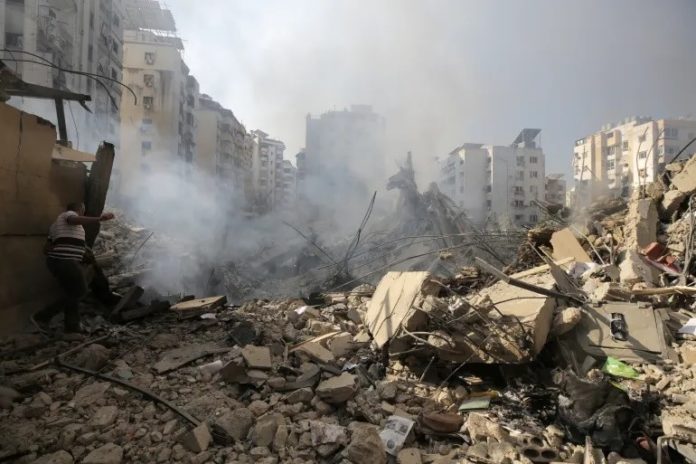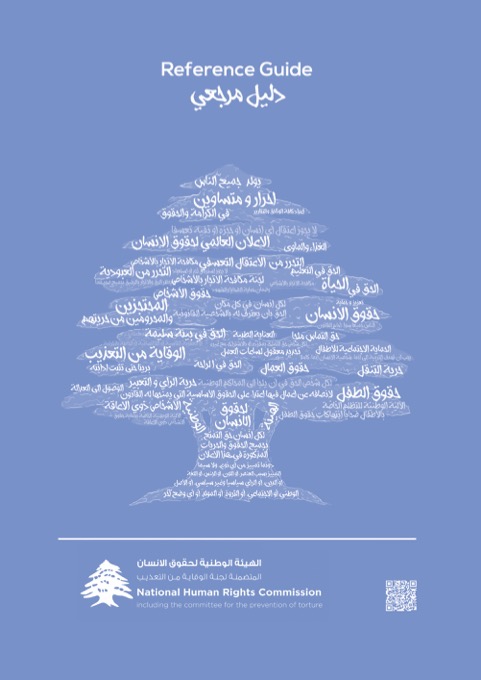هذا التقرير متاح أيضًا بـ: العربية (Arabic)
The daily violations committed by Israel against Lebanon through the “Northern Arrows” operation constitute a breach of international humanitarian law, particularly the wave of violence that began on Monday, September 23, targeting densely populated areas. The death toll and number of injuries were horrifying within a few days, causing significant property damage and the displacement of thousands of citizens from southern Lebanon, the Beqaa, and other regions subjected to intense bombing.
On the fifth day of the operation, 51 people were killed, 223 were injured, and 2,500 citizens were displaced. Israel did not differentiate between military targets and civilians during these attacks, resulting in the destruction of hundreds of homes, businesses, and farms, as well as damage to “hospitals, medical centers, and ambulances.”
National Humanitarian Response
The humanitarian response has primarily been led by individual initiatives and efforts from some political parties and movements, despite the National Committee for Coordinating Disaster and Crisis Risk Management having drafted a national emergency plan in October 2023. As the aggression began, the committee announced the opening of public schools and vocational institutes for displaced persons. To date, shelters have hosted 52,900 people, representing about 30% of the displaced, suggesting that most of the displaced, around 175,000, still fall short of the plan’s capacity to accommodate 200,000 out of an estimated one million displaced persons.
The shelters that were opened were ill-prepared, lacking essential needs such as “mattresses and blankets,” drinking water, and even basic sanitation in schools. Moreover, there was a shortage of food supplies and infant formula.
It is also worth mentioning that civil defense is currently operating at only 40% of its capacity due to the need for maintenance of vehicles, as well as the ongoing economic crisis. Additionally, the current wheat stock is only sufficient to meet market needs for a short time if a full-scale war erupts. On the health front, the ministry has implemented a comprehensive, multi-faceted plan since the war on Gaza began, focusing first on training health teams, including how to handle a large number of health cases and manage mass casualties during crises.
Source: ANND Newsletter A Region on Fire


